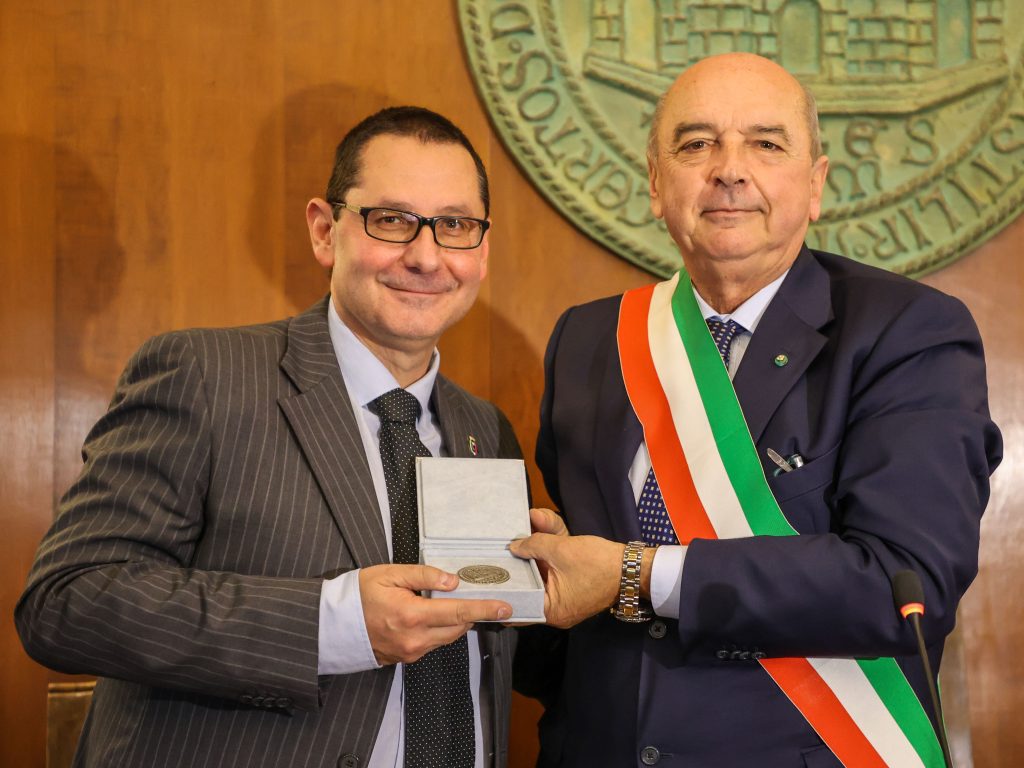by InTrieste
In a ceremony held in the historic council chamber of Trieste’s City Hall, the Unione degli Istriani (Union of Istrians) celebrated its 70th anniversary, marking seven decades of advocacy and remembrance for one of Italy’s most displaced and marginalized communities. The event, which brought together exiles, descendants, and supporters, highlighted the resilience of those who fled the Eastern Adriatic territories after World War II.
Founded on November 28, 1954, in the aftermath of the painful territorial losses following the war, the Unione degli Istriani has been a steadfast voice for the exiled populations of Istria, Dalmatia, Fiume, and Zone B. For decades, the organization has worked to preserve the history, traditions, and identity of those forced from their ancestral lands during one of modern Europe’s most contentious border reshufflings.

As part of the commemorations, the Municipality of Trieste presented the Sigillo Trecentesco (Three-Century Seal), one of the city’s most prestigious honors, to the Union. Mayor Roberto Dipiazza handed over the seal, recognizing the organization’s role in fostering memory and advocating for justice for the Eastern Adriatic exiles.
“This award is not only for the Unione degli Istriani but for all the families who have carried their traditions and heritage with them, enriching Trieste and the wider world,” said Massimiliano Lacota, the Union’s president, in his remarks.
The event drew attention to the cultural and historical contributions of the exiled communities, as well as the complex legacy of the postwar border changes. What is celebrated as a moment of joy—the return of Trieste to Italy in 1954—also marked profound anguish for those who lost their homes and homeland. The Union’s founding provided a lifeline for many, offering support, advocacy, and a place to preserve their shared identity.

Among the highlights of the ceremony were testimonies from descendants of the exiles, recounting the stories of resilience and hope that have been passed down through generations. The Unione degli Istriani also reaffirmed its commitment to educating future generations about the historical events that shaped their community.
The anniversary celebrations continue through November 30, with exhibitions, discussions, and cultural events that explore the legacy of the Eastern Adriatic exodus. These events not only honor the past but also serve as a reminder of the enduring impact of displacement and the importance of preserving cultural memory.
“This anniversary is about more than remembering loss,” said a participant during the ceremony. “It’s about celebrating survival, identity, and the strength of a community that has never stopped fighting for its place in history.”
In a city known as the “moral capital of the Exodus,” this week’s events reaffirm Trieste’s role as a custodian of a shared history and a bridge between the past and the future.





























